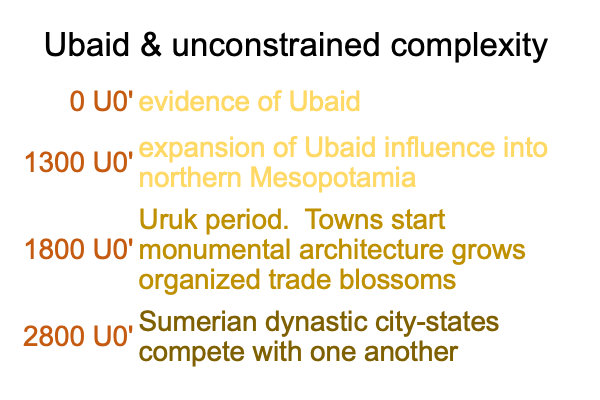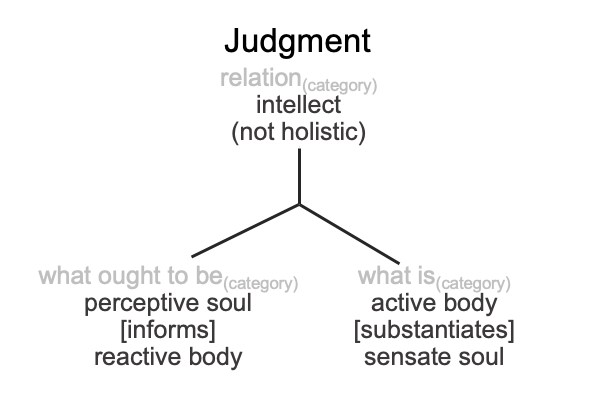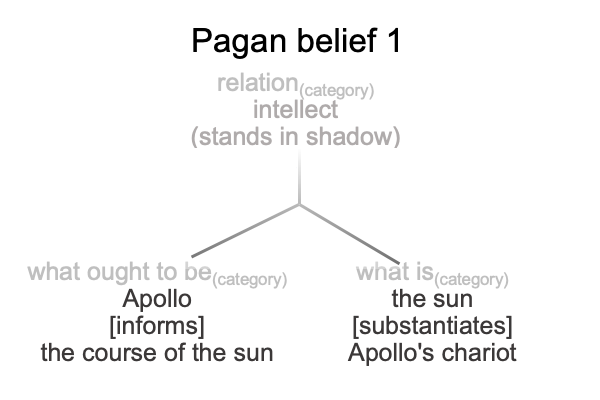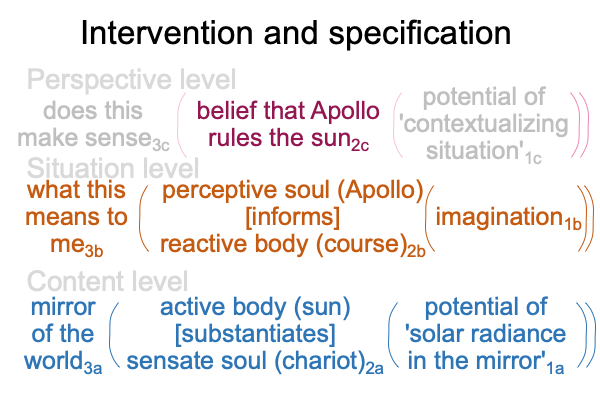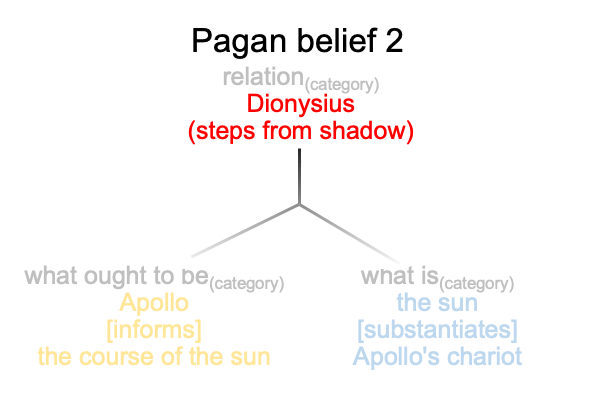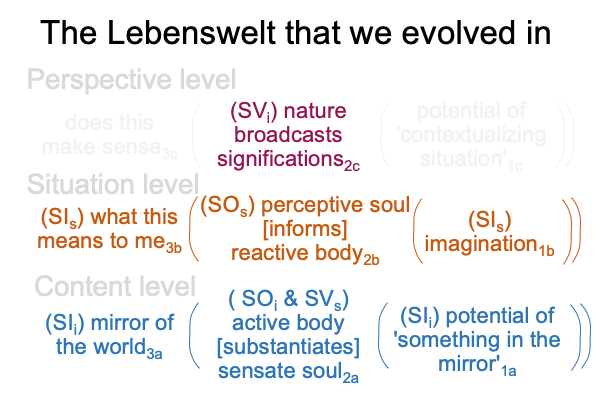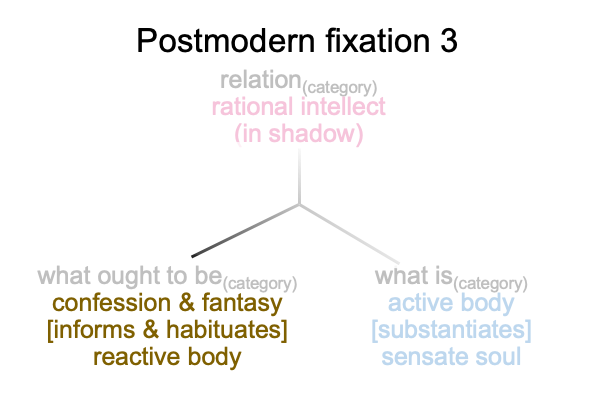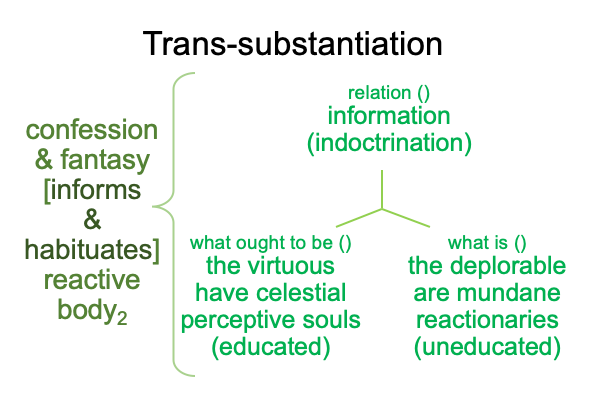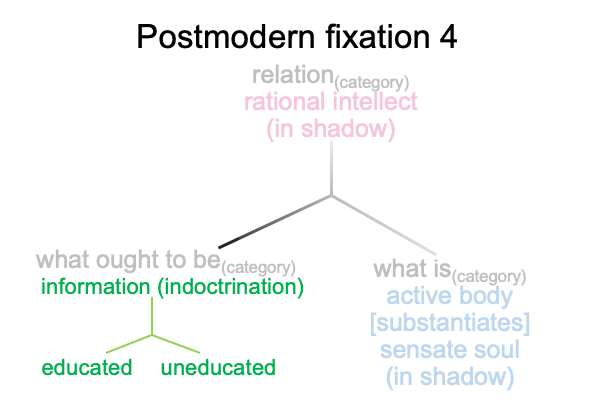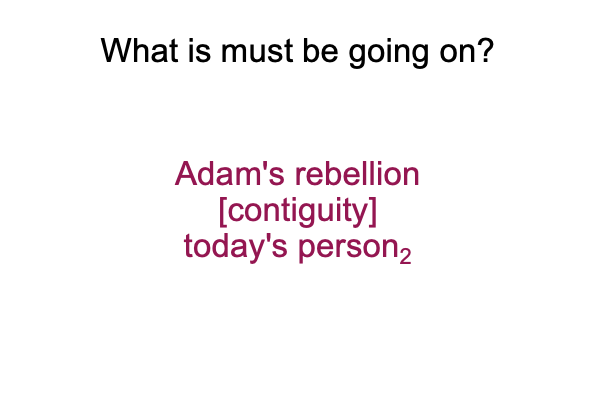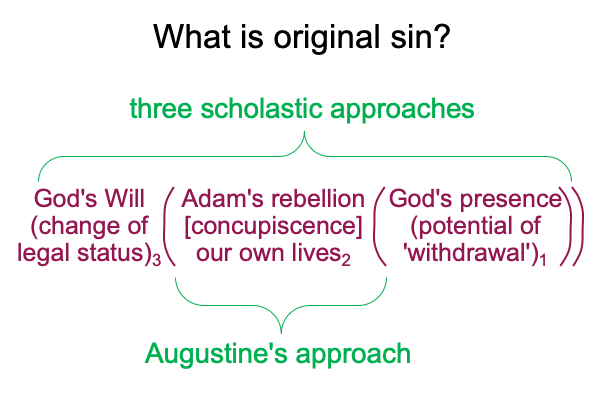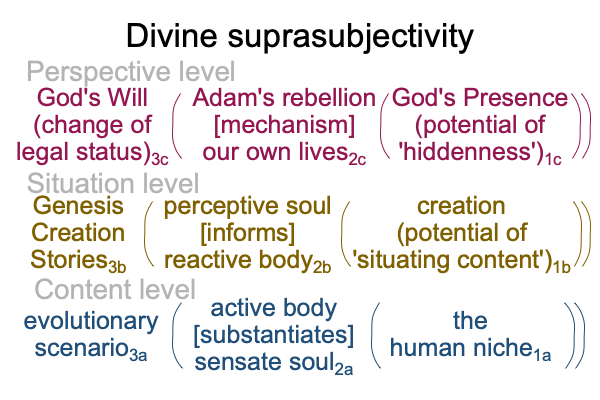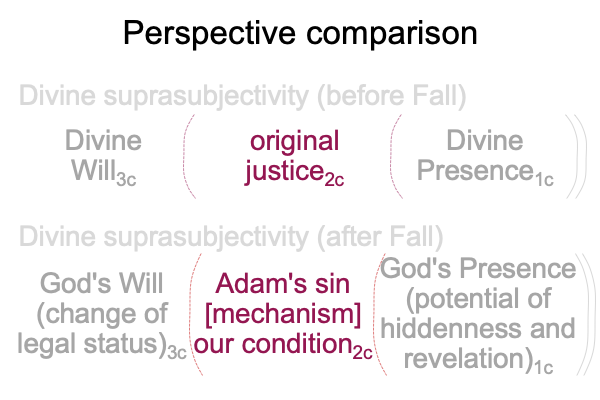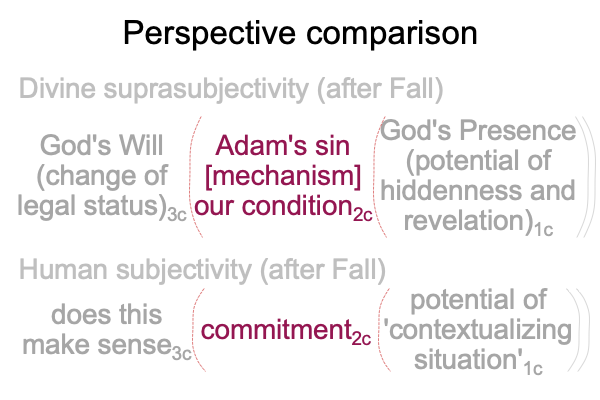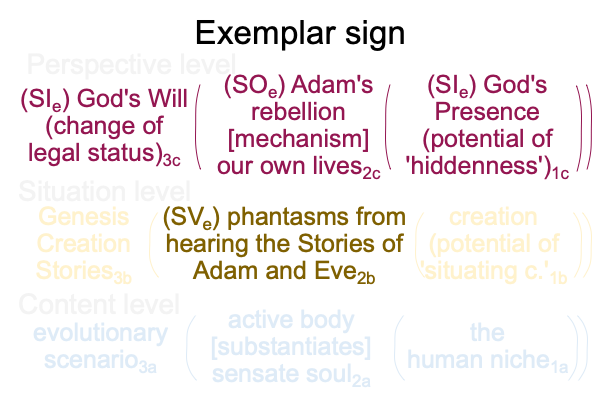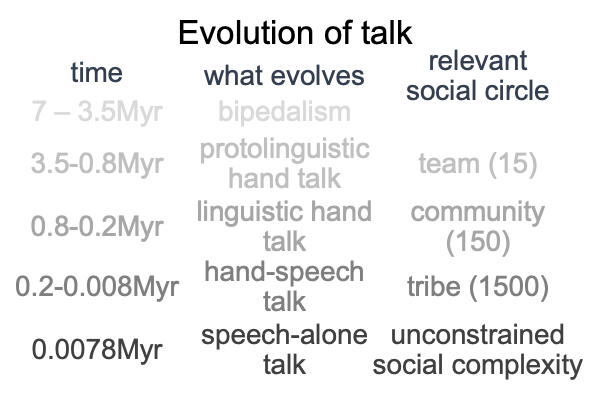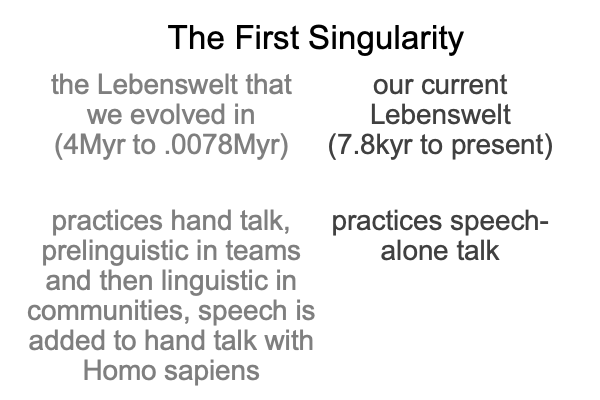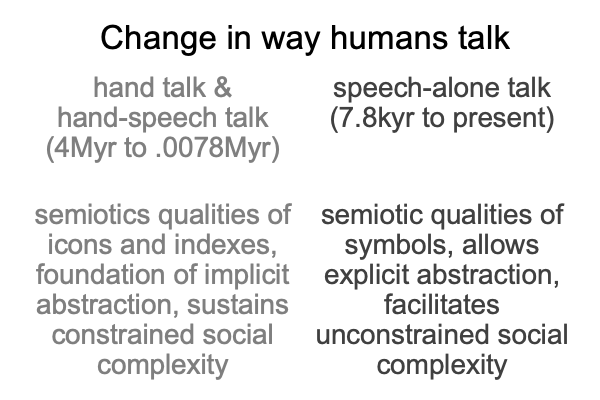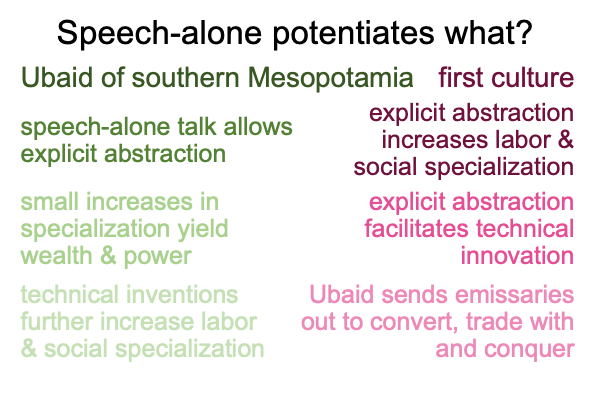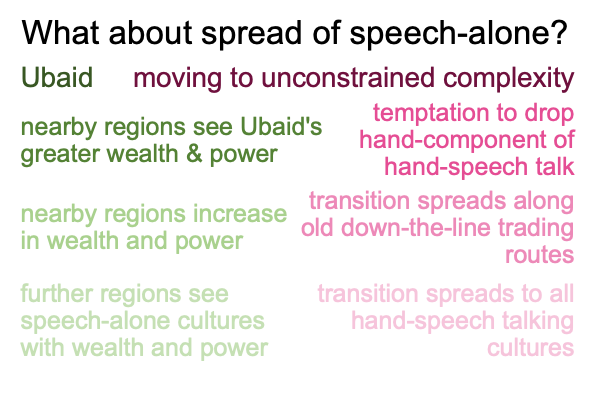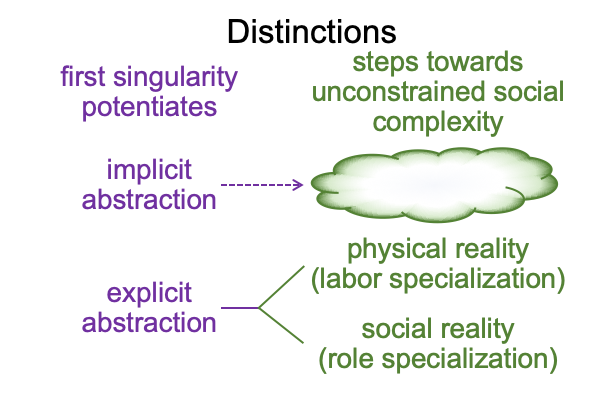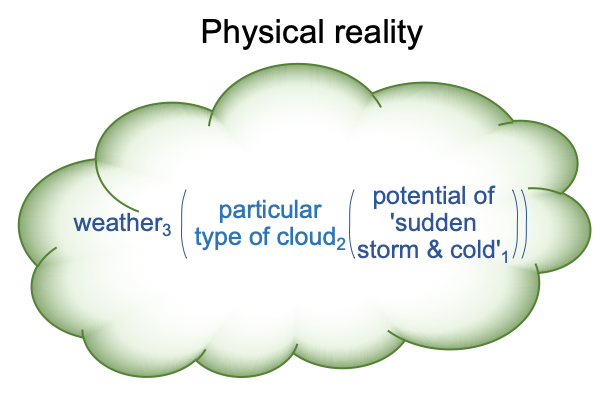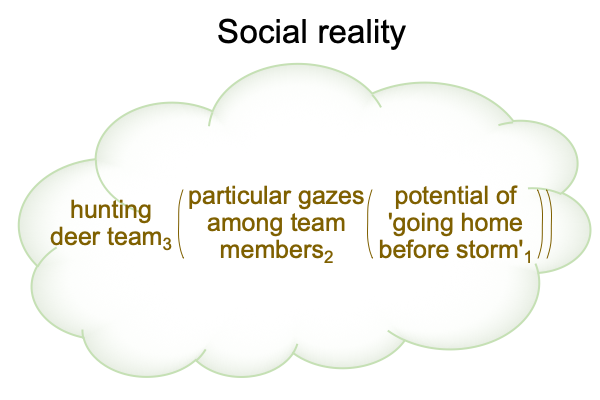Looking at Daniel Houck’s Book (2020) “Aquinas, Original Sin and the Challenge of Evolution” (Part 17 of 23)
0166 Here is the interscope for human subjectivity in the Lebenswelt that we evolved in.
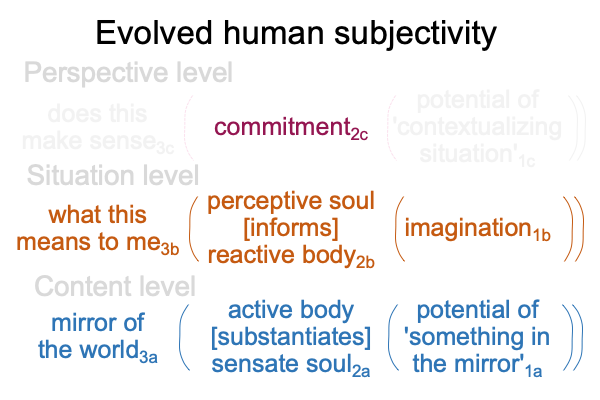
0167 Two signs are fully developed. One sign is intimated. All three signs are in play in the Lebenswelt that we evolved in.
Interventional and specifying signs are plain to see. The third sign, the exemplar sign, is not visible. Instead, the sign object (SOe), commitment2c, is implicated. This sign-object (SOe) arrives by way of implicit abstraction. This sign-object (SOe) cannot be pictured or pointed to. Neither can its sign-vehicle (SVe), the phantasm2b.
0168 Is the exemplar sign outside of language… er… talk?
Language evolves in the milieu of hand talk. Hand talk cannot picture or point to either phantasms2b or commitments2c.
So, the implicit abstractions of the exemplar sign are built into our bodies and minds.
0169 The evolution of talk is not the same as the evolution of language.
The evolution of talk is discussed in The Human Niche. Religious implications are presented in the chapter on meaning in How To Define the Word “Religion”. The socio-mechanics are presented in Comments on Clive Gamble, John Gowlett, and Robin Dunbar’s Book (2014) Thinking Big. The psychological-dynamics are discussed in Comments on Steven Mithen’s Book (1996) The Prehistory of the Mind.
0170 In a nutshell, hand talk starts as pantomime for the australopithecines and ends up as hand-speech talk for Homo sapiens. Hand talk is linguistic within each traditional team activity before it becomes an activity in itself due to the domestication of fire. Then, conversation and religion co-evolve, facilitating larger and larger groups. Vocalization or “singing” is used for social synchronization in seasonal, annual and occasional gatherings of increasingly larger groups. Synchronization is crucial for these time-constrained gatherings. The vocal tract comes under voluntary neural control. Then, the voice is exapted for talk with the appearance of our own species.
Hand-speech talk is practiced through the Paleolithic, then into the Epipaleolithic and Neolithic.
Hand-speech talking cultures occupy all habitable continents when the first singularity occurs.
0171 The Ubaid of southern Mesopotamia is the first culture to practice speech-alone talk for a very specific reason. Due to the rising oceans, the dry land of the Persian Gulf inundates, pushing two unrelated hand-speech cultures, one land-loving and one coast-loving, into proximity. The two cultures fuse in such a way that both languages contribute to a pidgin, which then turns into a linguistic creole. The process may have been as rapid as two generations.
The hand-component of each hand-speech talking culture does not make it through this process. The Sumerian language, unrelated to any other family of languages, is the first instance of speech-alone talk.
0172 The appearance of the Ubaid is historic.
I dub the official start of the Ubaid: 0 Ubaid Zero Prime. 0 U0′. “Zero Uh-Oh Prime”. The current year is 7821 U0′. In order to convert from AD to U0′, subtract 5800. The subtracted number may change, 5800 is a first approximation.
At 0 U0′, the Ubaid of southern Mesopotamia is the only culture practicing speech-alone talk. All other cultures practice hand-speech talk. This marks the start of the first singularity.
Today, all civilizations practice speech-alone talk.
0173 The semiotic qualities of speech-alone talk are very different than hand-speech talk. Hand-speech talk is composed of icons and indexes (even though, linguistically, it operates as a symbolic order). Speech-alone talk is not composed of icons and indexes, so the operations of its symbolic order comes to the fore.
0174 Language consists of two related systems of differences, parole (gesture) and langue (the mental activity generated in response to the gesture). Typically, parole2a gets decoded into langue2a on the content level of active body [substantiates] sensate soul2a.
0175 For hand- and hand-speech talk, the relation between word and referent is motivated. Parole arrives like a sign-vehicle of the interventional sign (SVi). So, the sign-object of sensations and feelings2a (SOi) accompanies a sign-interpretant where ‘something’1a is happening3a. Ontologically, the referent precedes the gesture-word.
For speech-alone talk, the relation between word and referent is arbitrary. Speech-alone sign-vehicles are not broadcast by nature. Ontologically, the referent follows the spoken word.
0176 Then, what is the contemporary source2c of the sign-vehicle for the interventional sign for speech-alone talk?
Uh-oh.
We are in trouble.
Just who or what drives signification2c in our current Lebenswelt?
Oh, let me google that.

